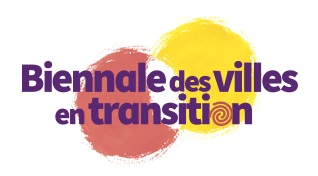Carbon strategy
Do you already know the potential impact of climate change on your operations?
Why calculating carbon emissions?
As for every performance, there is no improvement without measurement, stratification and action prioritisation.
This is exactly what carbon accountancy allows:
• Identification of the major contributors to the complete footprint of your company, public service or local council,
• Quantification of the relative weight of each activity but also the impact of possible improvement actions.
Indeed, without measuring, and especially in the field of carbon footprint, there are a multitude of falsely good ideas and counter-intuitive results.
Only a precise understanding of the activity considered and of carbon emission factors allow to identify the relevant and efficient changes. This is the combination WELYA offers to create with your teams.
ISO14069 carbon footprint analysis, a mere carbon calculation?
Using a French ADEME tool compatible with ISO14069 standard, WELYA methodology goes far beyond the simple quantification of emission sources from your structure, and this is the added value of world-wide known Bilan Carbone® method. Indeed, the proposed project is much wider.
It starts with the compulsory alignement of the whole structure with full support of top management and the necessary training of the teams in climate change challenges : Bilan Carbone® is a significant workload for the teams, more than to the consultant, in order to gather dispersed data within the whole organisation. Understanding the deep reasons of such an increase of workload is then a key success factor for a relevant and efficient footprint analysis.
Once the starting point is established, the work is just starting. The next two steps are the real added value of the method. First, proposals of quantified actions designed with the teams on several timescales:
- Short-term actions, probably with limited reduction potential, but key as teaching and motivating examples of reduction projects showing the structure’s engagement to start the reduction plan,
- Deeper actions with significant reductions, needing longer implementation time (some months or years) due to their complexity and wider scope,
- Eventually, strategic actions that may well challenge the structure’s own business model for future resilience.
Complete identification of greenhouse gases emissions from the organisation allows also to make some sensitivity tests to energy parameters: cost of fossil fuels, possible introduction of carbon significant cost (like a unified European carbon taxation for example). This creates a strategy piloting tool, highlighting the organistion’s sensitivity to future evolutions, the possible opportunities or increasing the awareness about potential threats that can either modify operations, or at worst challenge completely the business model of a company or the future of a public service or local council.
Going further with ACT Step-by-Step methodology
ISO14069 and Bilan Carbone® analyses allow to establish the starting point and the main routes of the company’s transition towards a reduced impact in GHG emissions. However, this transition, to be of sufficient magnitude, asks for a company’s strategy and vision reassessment. This level of assessment is rather deep and may require support.
To do so, the ADEME has created the Assessing low Carbon Transition (ACT) initiative and offers the ACT-Step by Step methodology, which allows a progression from the quantification of emissions to the development of a strategy with quantified objectives, intermediate milestones in time and an operational action plan. These quantified objectives are chosen on the basis of international or national decarbonization trajectories, which have already been proposed in various sectors of activity.
Check your strategy with ACT-Assessment
Once the strategy is established and the action plan launched, the company progresses on its decarbonization path, but is this progress up to what was expected? Is it sufficient to achieve the collective objective which, in France, is carbon neutrality by 2050? These questions are important for the company but will also be more and more important for investors because, as Mark Carney, governor of the British central bank in 2019, said: “Companies and industries that are not moving towards zero-carbon emissions will be punished by investors and go bankrupt”.
In collaboration with the Carbon Disclosure Project, ADEME has developped the ACT-Assessment methodology since 2017: this allows to assess, on quantitative or qualitative criteria and in 9 different areas of the company, the overall strategy, the consistency of actions and their adequacy with the different trajectories of the major sectors of activity within the Science Based Targets (SBTi). As all sectors do not have the same efforts to make and the same constraints, the methodology is adapted by sector of activity.
WELYA has been a partner in the ACT Initiative methodology development, especially for the Chemistry, Glass and Pulp&Paper sectors.
Our offers
> Your organisation has never evaluated its carbon missions?
WELYA offers to work together and to pilot the different steps of a carbon footprint analysis project, compatible with ISO14069, from the initial definition of scope, the training of the teams to the final report with emissions analysis, improvement proposals and sensitivity studies.
In order to raise awareness about climate change in the teams, it is proposed not to work with WELYA, but with a citizen association in France called Citoyens pour le Climat: the aim of this association is to raise awareness on climate change from a scientific and factual standpoint, by co-constructing events with companies. The founds obtained are used to organise workshops for primary schools, high schools and college levels, for free. It could well be local schools in your site area, or schools where the kids of your collaborators go.
> You already measured your carbon emissions?
WELYA offers you two types of support:
- The development of your decarbonization strategy with the ACT Step by Step methodology: the potential questioning of the entire activity of the company is not an easy exercise and external support which provides the framework and the major necessary trajectories is interesting, especially for smaller companies.
- The implementation evaluation of this strategy with the ACT Assessment methodology: for companies that have already established their decarbonization strategy, an outside eye, benevolent but without complacency, allows to identify strengths and areas for improvement , either in the strategy or in its implementation. Knowing and applying the right methodology for your industry sector helps assessing your progress in the most relevant way.
137, rue du Bois d’Agnetz – 60600 Agnetz
06 80 16 10 15 – opym@welya.fr


